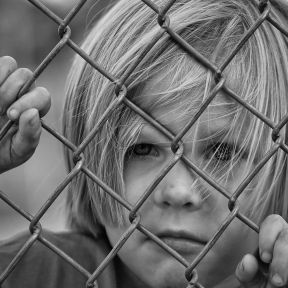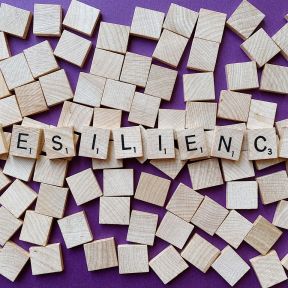
Post-Traumatic Growth
Post-Traumatic Growth is the positive psychological change that some individuals experience after a life crisis or traumatic event. Post-traumatic growth doesn’t deny deep distress, but rather posits that adversity can unintentionally yield changes in understanding oneself, others, and the world. Post-traumatic growth can, in fact, co-exist with post-traumatic stress disorder.
The phenomenon was identified by psychologists Richard Tedeschi and Lawrence Calhoun in the 1990s. Based on their research, the pair described five categories of growth that occur over time: Survivors of trauma recognize and embrace new opportunities. They forge stronger relationships with loved ones as well as with victims who suffered in the same way. They cultivate inner strength through the knowledge that they have overcome tremendous hardship. They gain a deeper appreciation for life. And their relationship to religion and spirituality changes and evolves.
Life crises are seismic events. They have the power to shake the entrenched beliefs people hold and force them to think in completely new ways about themselves, their relationships, and the world. Confronting a traumatic event and trying to make sense of it can therefore lead to powerful shifts in thinking.
Not everyone who suffers trauma experiences post-traumatic growth, but for those who do, the changes can be lifelong. Although the exact number is unknown, researchers estimate that half to two-thirds of trauma survivors may experience post-traumatic growth.
Certain characteristics make the outcome of post-traumatic growth more likely: Those who experience it are more likely to be women, adults at the time of the trauma, and embody the personality traits of openness to experience and extraversion.
Post-traumatic growth goes above and beyond resilience. Rather than persevering through challenging circumstances, it represents the capacity to reflect, grow, and truly shift one’s perspective. Surviving a grueling battle with cancer, for example, may lead someone to quit their job and devote their life to the fight against cancer. They may experience a new appreciation for life, commitment to their values, and connection to loved ones.
Psychologists continue to explore and debate post-traumatic growth. Many studies have relied on an individual’s self-reports to assess how they have changed, yet perceived growth and actual growth are not always aligned. (Some studies, however, incorporate interviews with family members to validate the changes.)
Some experts believe that post-traumatic growth is actually a coping mechanism to help survivors overcome their shattered worldview and newfound sense of vulnerability. It may be an adaptive tool for revising the narrative of one’s life and returning to equilibrium—but one that does not necessarily result in an improved outlook.
Trauma survivors who want to cultivate growth can strive to process the experience once they have space from it; It’s nearly impossible to evolve in the middle of a crisis, but reflection in its aftermath can provide a foundation for growth. Survivors can explore how the experience changed their mindset, if they appreciate life in a new way, whether their relationships have deepened, or whether they embody a new sense of spirituality
The belief that stress is harmful can create an additional burden of “stress about stress.” But there are ways to change your mindset to leverage the benefits of stress. Pay attention to the opportunities for growth that accompany stress, and choose those situations that have personal value. Reframe how you perceive the stressor, and regulate your physiological response, such as by engaging in breathing exercises.
While some may decide to strive toward self-improvement goals during the lockdown, that philosophy shouldn’t necessarily be the default. Growth from the pandemic may occur in the future when people have returned to a baseline level of functioning. In the meantime, simply coping is key, by expecting a short-term increase in mental health symptoms, allowing negative emotions to run their course, and keeping a record of effective coping skills.
Many people do not experience an upside to a traumatic experience—and that’s ok. Survivors can simply work to process the experience and curb its influence on daily life. Effective therapies for PTSD include prolonged exposure therapy and cognitive processing therapy, and medications can address difficult symptoms. New research is beginning to reveal the neurobiological hallmarks that may soon help to prevent and cure PTSD.
Practitioners should take care to meet clients in their current mindset and avoid minimizing their suffering or jumping to practical solutions. But the concepts of post-traumatic growth can gently and gradually be introduced by helping clients reflect on insights from their experience, for example discovering that they were stronger than they thought or having changed their priorities in life.














